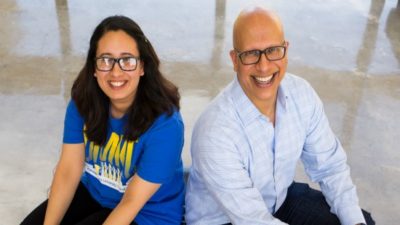Dynamic duo in biology researches and leads
With a student-to-faculty ratio resembling a small private college, UMKC makes mentorship a central part of the student experience. Though more than 16,000 students are enrolled, the 14:1 student-to-faculty ratio is unusually small for such a large university.
The result: UMKC has many mentorship success stories.
Meet Ryan Mohan, assistant professor, School of Biological Sciences, Division of Cell Biology and Biophysics; and Ada Thapa, who is graduating in May 2017 with a Bachelor of Science in Biology.
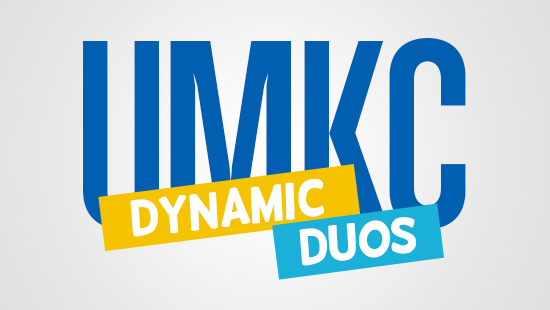
Tell us the story of your mentorship.
Ada Thapa: I have known Dr. Mohan since fall 2015, and I have been working in his lab for more than a year now. Throughout the year, I have learned not only about the techniques to conduct an experiment but also the skills to handle an unsuccessful experiment professionally.
Dr. Mohan took on the task of grooming me, someone with little to no prior research experience, into the research professional I have become. It is amazing to see how his lab has grown from one undergraduate student to more than seven. Dr. Mohan is also my counselor with whom I can share my thoughts about anything. He is always willing to share his experience and knowledge to find career related information and resources.
He has a high expectation from his students. You will find yourself working hard to live up to that expectation and learning throughout the process.
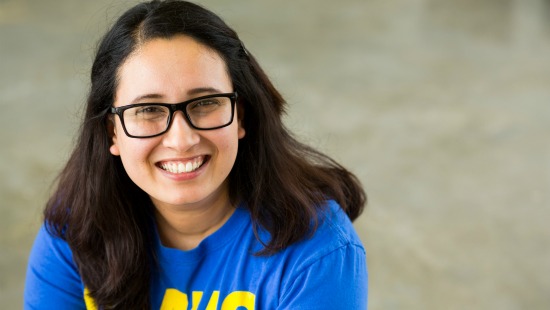
What makes faculty mentorship critical to student success?
Ryan Mohan: A good faculty mentor has been instrumental in the development of many important scientists. There is no substitute for good mentorship in passing skills and knowledge from one generation of scientists to the next.
A good mentor wants only the best for their students — they see their success in the successes of their trainees. Find a mentor who takes the time to mentor. If possible, find someone who has a good record of mentoring, or comes recommended as a good mentor.
I have taken great enjoyment in seeing my students develop sharp scientific thinking ability, make important new discoveries, make new friends in the laboratory, become mentors to new students, take on challenges and succeed, win awards, see them grow into confident, capable biochemists, cell biologists and neuroscientists.
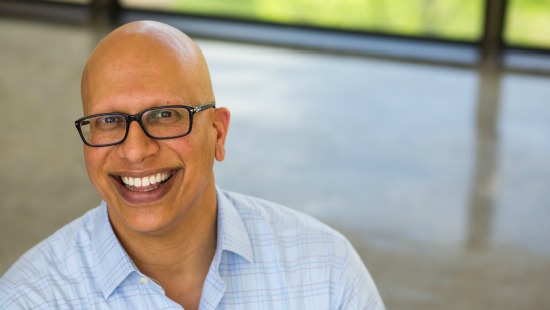
UMKC emphasizes undergraduate research. What makes that important?
Ryan Mohan: I give the undergraduate researchers I mentor the kind of experience they would have as a graduate student. They become scientists. They will be able to start graduate school in a good place. At UMKC, we are so glad to have a partner in Dr. Jane Greer, who does so much to promote undergraduate research and mentoring.
It has been a joy to watch Ada grow in the laboratory. She has taken on immense challenges and mastered them. She is brave, confident, kind, intelligent and diligent. I have watched her apply these excellent personal qualities to become a leader in the laboratory. She has had many successes and is going on to an exciting new chapter in her life at the University of Maryland graduate program in Public Health.
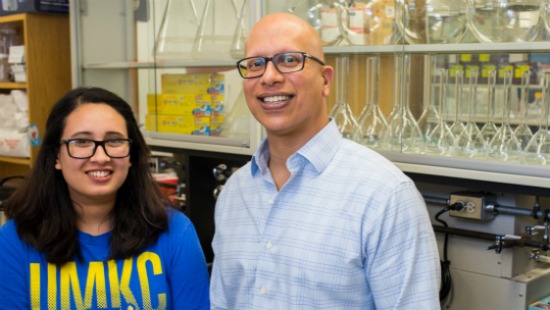 How has mentorship at UMKC benefitted you?
How has mentorship at UMKC benefitted you?
Ada Thapa: UMKC gave me a platform to build my career path.I got accepted to four different graduate schools for my master’s program because of my skills and experiences that I have learned from UMKC.
If I go back to my first year, I never imagined doing research and accomplishing so much during my time as an undergraduate. I came from Nepal and I struggled with the curriculum as well as socializing as a student. Because of that, my confidence as a student plummeted. If I had met the Ada of that time and she had met me, she would be skeptical about what I have accomplished at my last year of UMKC.
I am who I am today because of Dr. Mohan. He believed in me and helped me through my final year of college. The impact he has made in my life is unforgettable and worth mentioning to everyone, especially those students who are trying to get into research without any prior experience. You will never know what you can accomplish if you do not have a mentor to guide you.

